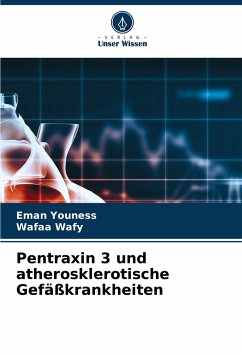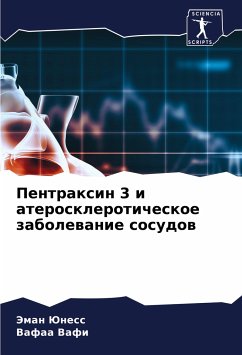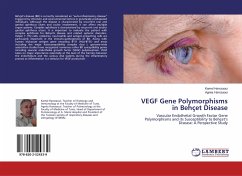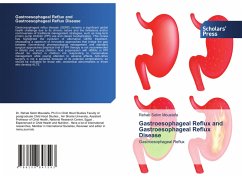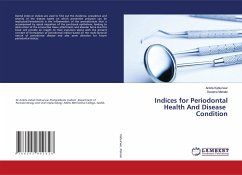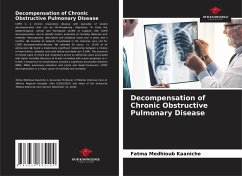
Pentraxin 3 and Atherosclerotic Vascular Disease
Versandkostenfrei!
Versandfertig in 6-10 Tagen
34,99 €
inkl. MwSt.

PAYBACK Punkte
17 °P sammeln!
PTX3 is a soluble pattern recognition molecule involved in innate immune processes and inflammatory responses. Additionally, it regulates angiogenesis, influencing tissue blood supply. These findings offer new insights into the pathogenesis of PTX3 in cardiovascular diseases (CVDs). Indeed, multiple CVDs are not isolated but closely correlated. For instance, long-term hypertension can exacerbate atherosclerosis (AS) and may eventually lead to heart failure (HF). PTX3 serves as a valuable biomarker for risk stratification across various CVDs, aiding in outcome prediction. It has emerged as a cr...
PTX3 is a soluble pattern recognition molecule involved in innate immune processes and inflammatory responses. Additionally, it regulates angiogenesis, influencing tissue blood supply. These findings offer new insights into the pathogenesis of PTX3 in cardiovascular diseases (CVDs). Indeed, multiple CVDs are not isolated but closely correlated. For instance, long-term hypertension can exacerbate atherosclerosis (AS) and may eventually lead to heart failure (HF). PTX3 serves as a valuable biomarker for risk stratification across various CVDs, aiding in outcome prediction. It has emerged as a crucial acute-phase protein associated with inflammation in cardiovascular disorders, including heart failure, atherosclerosis, acute coronary syndromes, and peripheral vascular diseases. Importantly, PTX3's predictive value seems to be independent of other risk factors, including other markers of the same superfamily, such as CRP. The rapid increase in PTX3 plasma levels during cardiovascularevents, a consequence of swift synthesis by various cell types, supports the notion that PTX3 could serve as an early indicator of the activation of both immune and inflammatory responses.





